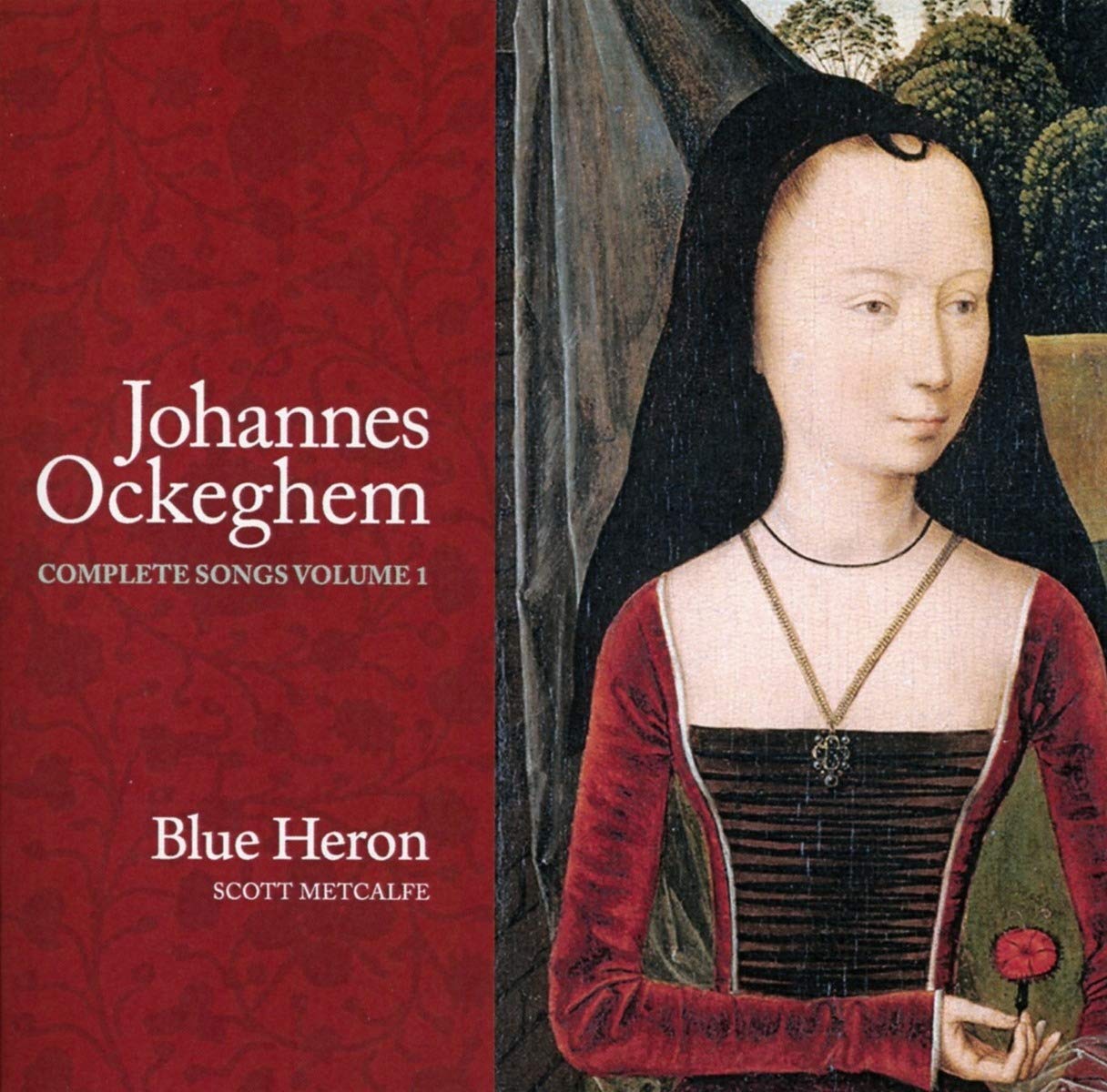Blue Heron, Scott Metcalfe
76:49
Blue Heron BHCD 1010 (6 45312 49963 2)
Click HERE to buy this on amazon.co.uk
This is the first of two CDs which will include all Ockeghem’s surviving chansons. Following hard on the heels of their fine recording of Rore’s first book of madrigals (see my review in EMR November 10, 2019), and ever mindful of their series of discs containing music from the Peterhouse partbooks, the final one of which won the prestigious Gramophone early music prize, expectations could not be higher: will Blue Heron’s performances complement the greatness of Ockeghem’s music?
Two of the thirteen songs are not attributed to him. The anonymous rondeau En atendant vostre venue is included because it quotes from his Quant de vous seul which is sensibly placed to precede it on the disc; and Au travail suis is attributed to both Ockeghem and Barbingant in different sources, but because it similarly quotes Ma maitresse it is attributed here to Barbingant and likewise included after the work it quotes. Two other works survive anonymously but in circumstances that point to Ockeghem as their likely composer. All this is explained in scrupulous detail by Sean Gallagher in the excellent accompanying booklet, which also contains a fine essay by Scott Metcalfe about performing the songs, with sections on instruments, interpretation of surviving underlay, and pronunciation.
Those of us listening to or performing Ockeghem’s music have the benefit of perspective. Specifically: his contemporaries could hear his songs simply as the music itself and/or as it had been influenced by the work of his predecessors. They would also have noticed elements that were original, and perhaps some that reflected a personal style. From the 21st century we have the additional benefit of hearing how his music influenced and affected subsequent musical developments, not only among his disciples, but also over the centuries up to the 20th and 21st. While we have expectations of what late mediaeval or early Renaissance composers’ music will sound like, we could not reasonably expect Ockeghem’s songs to sound in some places so remarkably prophetic, even modern. Admittedly the listener has to rely on the editor to have reproduced accurately what Ockeghem intended to be heard 500 years ago but, taking this on trust, many passages in these songs reach effortlessly across the centuries. Even as soon as the first three words of the opening track Ockeghem is shaking hands with later generations and there is another striking passage in Fors seullement contre ce qu’ay promis at “une belle aliance”. (Philip A. Cooke’s recent book about James MacMillan mentions his subject’s assimilation of Ockeghem’s technique.) While such passages might not be unparalleled in music of this period, their placing by Ockeghem is so assured as to seem that he is, so to speak, setting an agenda for musicians of the future. Like all the greatest composers he is able to combine exquisite melodies with the highest technical accomplishment, so that however many verses a song possesses, each one is welcomed anew by the listener, who at the conclusion is left wanting more.
The performances are superb, serving this music with the perfect balance of restraint and commitment. Just occasionally, as in the taxing discantus part of Fors seullement contre ce qu’ay promis, there is just a hint of insecure intonation, but Blue Heron live up to their reputation as among the finest interpreters of early music on the planet. There are recordings of Ockeghem’s music which are as good – one thinks of the masses sung by The Clerks’ Group under Edward Wickham – but this is only to be demanded when performing music of this quality.
Instrumental participation, so often the Achilles heel of this sort of recording, is limited, capable, judicious and discreet. Conductor Scott Metcalfe plays the contratenor parts on the harp on four of the thirteen tracks, the vielle on another (Au travail suis attributed to Barbingant) and duets on the vielle with Laura Jeppesen on the setting of O rosa bella a2 with a discantus attributed to each of Bedyngham and Ockeghem.
A second disc of Ockeghem’s songs, again sung by Blue Heron, is in place. And in the case of Ockeghem, more of the same means more of his wonderful difference.
Richard Turbet
